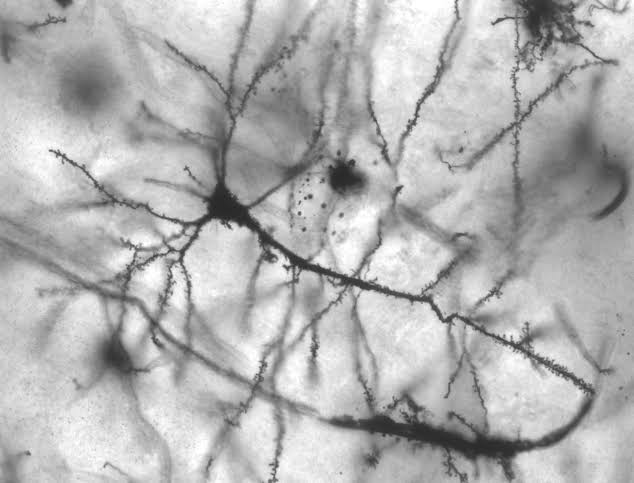A lot of people feel confused about which diseases are covered under the umbrella term Chronic Neurological Conditions. India’s RPWD Act 2016 mentions Chronic Neurological Conditions as one of the recognized disabilities. In order to provide a meaning or definition of these conditions, the guidelines give examples of Multiple Sclerosis and Parkinson’s disease.
Definition and Meaning of Chronic Neurological Conditions
The 4th July 2018 notification of the Ministry of Social Justice and Empowerment give definition as below:
Chronic neurological conditions, such as—
(i) “multiple sclerosis” means an inflammatory, nervous system disease in which the myelin sheaths around the axons of nerve cells of the brain and spinal cord are damaged, leading to demyelination and affecting the ability of nerve cells in the brain and spinal cord to communicate with each other;
(ii) “Parkinson’s disease” means a progressive disease of the nervous system marked by tremor, muscular rigidity, and slow, imprecise movement, chiefly affecting middle-aged and elderly people associated with degeneration of the basal ganglia of the brain and a deficiency of the neurotransmitter dopamine.
But MS and PD have been cited only as examples. There are other conditions that can be categorized under Chronic Neurological Conditions. Some more examples can be:
- Alzheimer’s disease and Dementia
- Parkinson’s disease
- Dystonia
- ALS (Lou Gehrig’s disease)
- Huntington’s disease
- Neuromuscular disease
- Multiple sclerosis
- Epilepsy
- Stroke

Disability Certificate for Chronic Neurological Conditions
If you believe that you’re affected with one of such conditions, you can apply for disability certificate. As per the notification, reversible and without sequel neurological conditions are not certifiable. Only permanent neurological conditions are certifiable. Permanent disability certificate can be issued in irreversible / progressive cases. If needed in specific cases, a re-evaluation of disability can be done after a period of one year.
Certifying Authority for Such Conditions
The Medical Superintendent or Chief Medical Officer or Civil Surgeon or any other equivalent authority as notified by the State Government shall be the head of the certification authority with the following two other members:
- Pediatrics for childhood chronic neurological conditions/psychiatrist for mental illness due to chronic
neurological conditions/neurologist for chronic neurological conditions without mental illness - Specialist for certifying locomotor disability
- Trained psychologist (clinical or rehabilitation) to administer IQ test
The disability certificate shall mention Chronic Neurological Conditions (name of disease).
If required standardized IQ test may be carried out . Categories on IQ score will be:
- Mild Disability: The range of 50 to 69 (standardized IQ test) is indicative of mild disability.
- Moderate Disability: The IQ is in the range of 35 to 49.
- Severe Disability: The IQ is usually in the range of 20 to 34.
- Profound Disability: The IQ in this category estimated is to be lesser than 20.
In cases where the chronic neurological condition requires only IDEAS, only IDEAS can be administered and
degree of disability certified.
In cases where the chronic neurological condition requires only IQ, a standardized IQ test should be used to
certify degree of disability.
In some cases, only one test may not estimate disability comprehensively. Such a person may have borderline score
on one test with marked disability score on the other. In such cases both IQ and IDEAS shall be used. The score
indicating more severe disability shall be the degree of disability for that person.
Use the citation below to add this article to your bibliography
"Chronic Neurological Conditions: Meaning, Types, Disability." Wecapable.com. Web. June 18, 2025. <https://wecapable.com/chronic-neurological-conditions-meaning-types-disability/>
Wecapable.com, "Chronic Neurological Conditions: Meaning, Types, Disability." Accessed June 18, 2025. https://wecapable.com/chronic-neurological-conditions-meaning-types-disability/
"Chronic Neurological Conditions: Meaning, Types, Disability." (n.d.). Wecapable.com. Retrieved June 18, 2025 from https://wecapable.com/chronic-neurological-conditions-meaning-types-disability/

Nice information but, 45 percentage is mild disability as consider
Very good and useful information. Youve not presented coldly, as if a disability is a math equation. Rather, you lead letting your compassion establish the context tkehat invites those of us afflicted with a disability to explore the content provided here. More to say, but my tremor keeps tapping keyboard causing me to erase random letters almost as frequent as intended correct letters typed… So pardon that I’ve stopped here…. (you read too far, go back to the left of opening paranthesis and disregard what’s between “(” and “)” Thanks!
what are government facilities for chronic neurological condition case?
I’m a person with learning difficulties and live with epilepsy! May I renew my certificate of registration for me to have a new disability card? Thank you
what is the exact definition of chronic neurological disorder there is only information about its types. help me to get the definition
I was born premature at 8 months with a low birth weight of 3 lbs. 3 oz., 2 permanently fused vertebras in my neck and two (2) BRAIN CYSTS that had protruded through my skull and were exposing themselves at the top crown of my head. And because I was premature with low-birth-weight Surgeons could not operate until my weight reached 20 pounds. Finally at 10 months old, I had Opened-Brain Surgery which Surgeons found that the 2 CYSTS were not connected/attached inside at the top crown of my head; but were connected to my BRAIN STEM and grew rapidly while in my mother’s womb and still growing after birth. They were both surgically removed and benign. I was also born with a RARE and PERMANENT Life-Long Neurological Brain Disorder called: “SUBCORTICAL BAND HETEROTOPIA ” AKA ” “DOUBLE CORTEX SYNDROME”. SYMPTOMS: Seizures, Learning, Cognitive, Mental Health, Low IQ and other Lifetime Disabilities. There is no cure. So, my question is: Does having this RARE, PERMANENT, LIFE-LONG DISABILITY qualify me for SSDI Benefits?
I have CIDP (Chronic Inflammatory Demyelinating Polyneuropathy) condition. But my doctor issued a temporary disability cirtificate valid for one year. Can I get permanent certificate for this?
Sir Do epileptics also comes under chronic neurological conditions can they get disability certificate